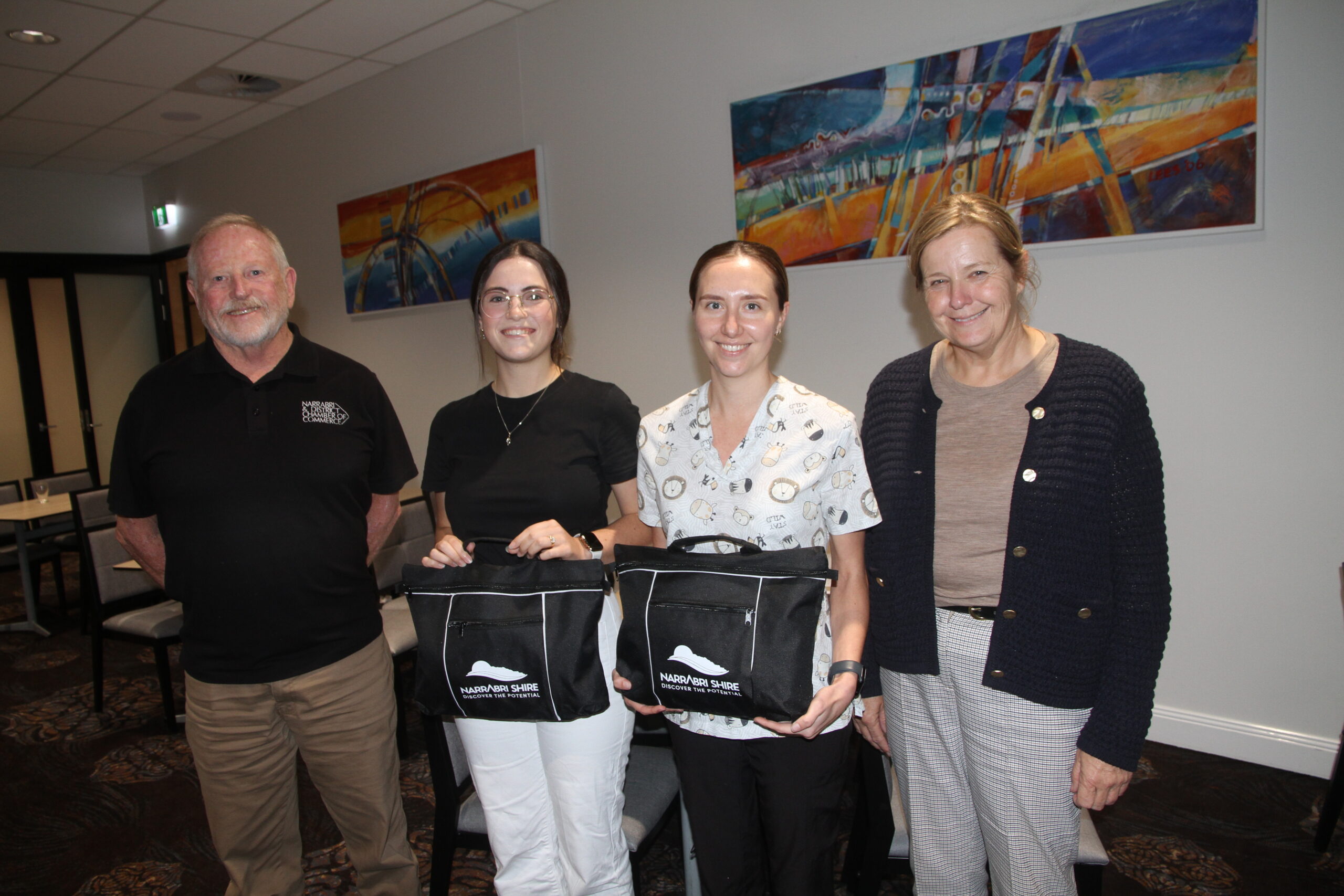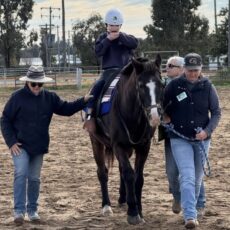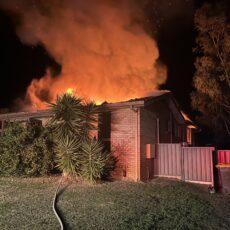Every country community is well aware that there is a critical shortage of rural GPs.
Narrabri is playing a role in a UNE and Newcastle University joint program aimed at encouraging medical students to come to the country and work as GPs when they are qualified.
The community is currently hosting two final year medical students who are here for 19 weeks working alongside GPs, community health staff, nurses and hospital staff, aged care personnel, medical practitioners generally – the spectrum of the district rural health workforce.
Emily McDonald and Brianna St John arrived in Narrabri at the end of January and will leave towards the end of June.
The two medical students are here as part of the Longitudinal Integrated Clerkship program – ‘longitudinal’ meaning it is quite lengthy, at 19 weeks, ‘integrated’ because they are meshed in with the health workforce and community, and ‘clerkship’ because the program is effectively a very hands-on medical apprenticeship.
This is the first time the six-month placement has been done in Narrabri under the program, and it will be ongoing.
Narrabri Chamber of Commerce members welcomed the students to the last meeting and presented many questions to the visitors.
Chamber president Russell Stewart emphasised that the chamber was ready to help in any way to ensure visiting students were welcomed and helped to join in the local community.
Emily and Brianna will be followed by two more final-year students for six months at the end of June.
“We try to give undergraduate students of a rural background a significant length of time as apprentice rural doctors,” said Associate Professor Dr Maree Puxty, UNE School of Rural Medicine, discipline lead for General Practice and the Longitudinal Integrated Clerkship.
“Students in their final year have 19 weeks in Narrabri or Inverell and spend their time working as a rural GP, supervised by a GP, in the hospital system, community health and allied health services.
“The curriculum is whatever walks or wheels through the door- whoever comes into the GPs’ surgery or the hospital emergency room is what they learn that day,” said Dr Puxty.
It’s very much ‘hands-on.’
In the program, students become more immersed in their clinical environments, experience greater patient contact, and receive more supervision than their city-based teaching-hospital peers.
The LIC website notes that graduates feel well-prepared, clinically confident and work-ready and cope better in future internship than graduates of traditional metropolitan hospital block rotations.
The idea is the students live in the community, develop relationships with health colleagues and other community members and hopefully be encouraged to return to the communities in the future.
“As senior students in the medical workforce, they can be very helpful to GPs, nursing staff, community health and doctors in emergency, take patient histories, examine people and learn procedures.
“They are not just standing in the corner watching, they are working and being helpful to the community,” said Dr Puxty.
An important part of the program is the students’ engagement with the local communities.
“We look forward to that engagement building with the next two students who start towards the end of June who will be in Narrabri for 19 weeks as well.
“The feedback from the program, over the first couple of years seems to be that the aspect students find most challenging is the social isolation,” said Dr Puxty.
The students are away from home, family, friends – in the smaller towns they just have each other.
“We hope students will develop social engagement, socialise, participate in local sports and clubs, get involved so they feel a connection to the community, which will encourage them to return, if not to this community, to another smaller rural community and feel so much a part of it.
“This is absolutely the advantage of smaller rural communities, that you feel engaged.”
The big picture aim of the Joint Medical Program, ‘joint’ meaning Newcastle and New England universities, is the urgent need for more GPs.
“We have a long-running crisis in doctors in rural environments and a significant decrease in interest in general practice training,” said Dr Puxty.
“We will be lacking about 10,000 GPs by 2030 – we don’t have enough GPs – let alone for the rural communities.
“The School of Rural Medicine, UNE was set up with the aim of improving the health of rural communities by training doctors who want to work in a rural environment.
“We did some research and decided the best way to contribute to the lack of rural GP workforce in New England-North West was to ‘grow our own.’”
To order photos from this page click here










